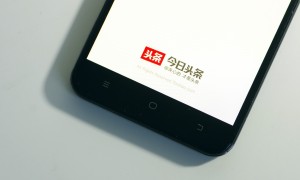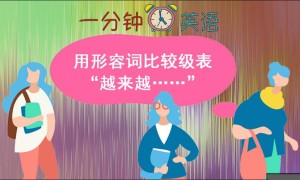"The first thing I do in the morning, is check my weixin and weibo account, to see if my friends have sent me any messages. Then I browse news to see what's fun. I even do this in the bathroom."
Wang Zhongyi, is part of the 80s generation, that has grown up in the wired world. He works for a literature and information website that publishes online books and original novels. He says tens of thousands of readers flock to his company's website everyday.
Wang said, "Most of our readers are college students and ordinary people who read light literature."
When Wang's not on the job, he's still online. His lunch is just a few clicks and about ten minutes away.
Wang doesn't have time to eat with friends but he makes sure they know what he's had for lunch.
Today even window shopping is a stationary activity. Wang is one of 300 million people in China who shop online. He says Internet shopping allows everyone, everywhere to shop for just about anything.
Wang said, "I've used Taobao since 2006. I've opened an online bank accounts and shop on many of the newer websites, like Jingdong. I usually buy electronic products from Jingdong, and things like clothes, shoes and foods on Taobao. "
By the end of 2013, China has more than 600 million internet users and 80 percent of them used their smart phones to get online. Internet access is now so ubiquitous (U-bee-qui-tous) the upcoming generation can't imagine life without it. They brag that online chats bring them virtually closer to friends and family, but admit it's widening the gap in face-to-face interaction.
"I've felt it in recent years, I feel people rely too much on the internet to communicate, and have less contact in the real space. I chat more often online with my parents but go home less. I think the internet is in some ways hurting the family bond and friendships," Wang said.
Wang of course never had to use a corner-store telephone to make a call nor has he experienced an unannounced drop-in from friends and family who had no way to contact him in advance. Despite the advantages brought by today’s wired world people like Wang are asking: is China now more or less sociable?







